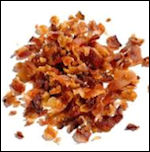 Is natural gas supply a constraint to Roanoke’s growth? Without the Mountain Valley Pipeline, the Roanoke Gas Co. says it will be unable to reliably meet future demand or serve all of its customers on the coldest days of the year. Writes Chairman John Williamson in a State Corporation Commission filing: “Southwest Virginia has more than enough constraints on economic growth without its premier MWA flat-lined due to a lack of reliable and affordable energy supply. … MVP is critical to that adequate energy supply.” MVP critics say that Roanoke Gas, which has a tangential financial stake in the pipeline, has an adequate supply from existing pipelines. But Roanoke Gas officials insist that when they asked about additional capacity from the interstate pipelines, they were told none was available. The Roanoke Times lays explores the controversy here.
Is natural gas supply a constraint to Roanoke’s growth? Without the Mountain Valley Pipeline, the Roanoke Gas Co. says it will be unable to reliably meet future demand or serve all of its customers on the coldest days of the year. Writes Chairman John Williamson in a State Corporation Commission filing: “Southwest Virginia has more than enough constraints on economic growth without its premier MWA flat-lined due to a lack of reliable and affordable energy supply. … MVP is critical to that adequate energy supply.” MVP critics say that Roanoke Gas, which has a tangential financial stake in the pipeline, has an adequate supply from existing pipelines. But Roanoke Gas officials insist that when they asked about additional capacity from the interstate pipelines, they were told none was available. The Roanoke Times lays explores the controversy here.
Keep on trucking. The Port of Virginia has completed a $320 million expansion of its container-loading capacity. With four new giant cranes and other improvements, it can handle three ultra-large container ships simultaneously. Port capacity has increased from about 2.7 million containers yearly to 4.4. million. But the growth in freight traffic is creating a new pain point: delays and prolonged turn-around times for trucks, reports the Virginian-Pilot. Unmentioned in the article is what impact rising truck traffic — four to five thousand trips daily when the port reaches full capacity — on the region’s transportation network.
Express lanes to the rescue! Speaking of constraints to growth, the Washington Post editorial board favorably contrasts Virginia’s transportation policies with those of Maryland. Northern Virginia, the board notes, is on its way to completing a nearly 100-mile network of tolled express lanes on the Beltway, and Interstates 66, 95, and 395, most of it financed, built and managed by the private sector. By contrast, a proposal to add express toll lanes in Maryland remains mired in controversy. The population of the Washington region is expected to grow by 1 million by 2045, car usage is increasing nationally, and transit improvements alone will not be able to prevent gridlock. Maryland’s inaction, says the WaPo, “threatens to consign [the] state to perpetual also-ran status in the regional economic sweepstakes.”


